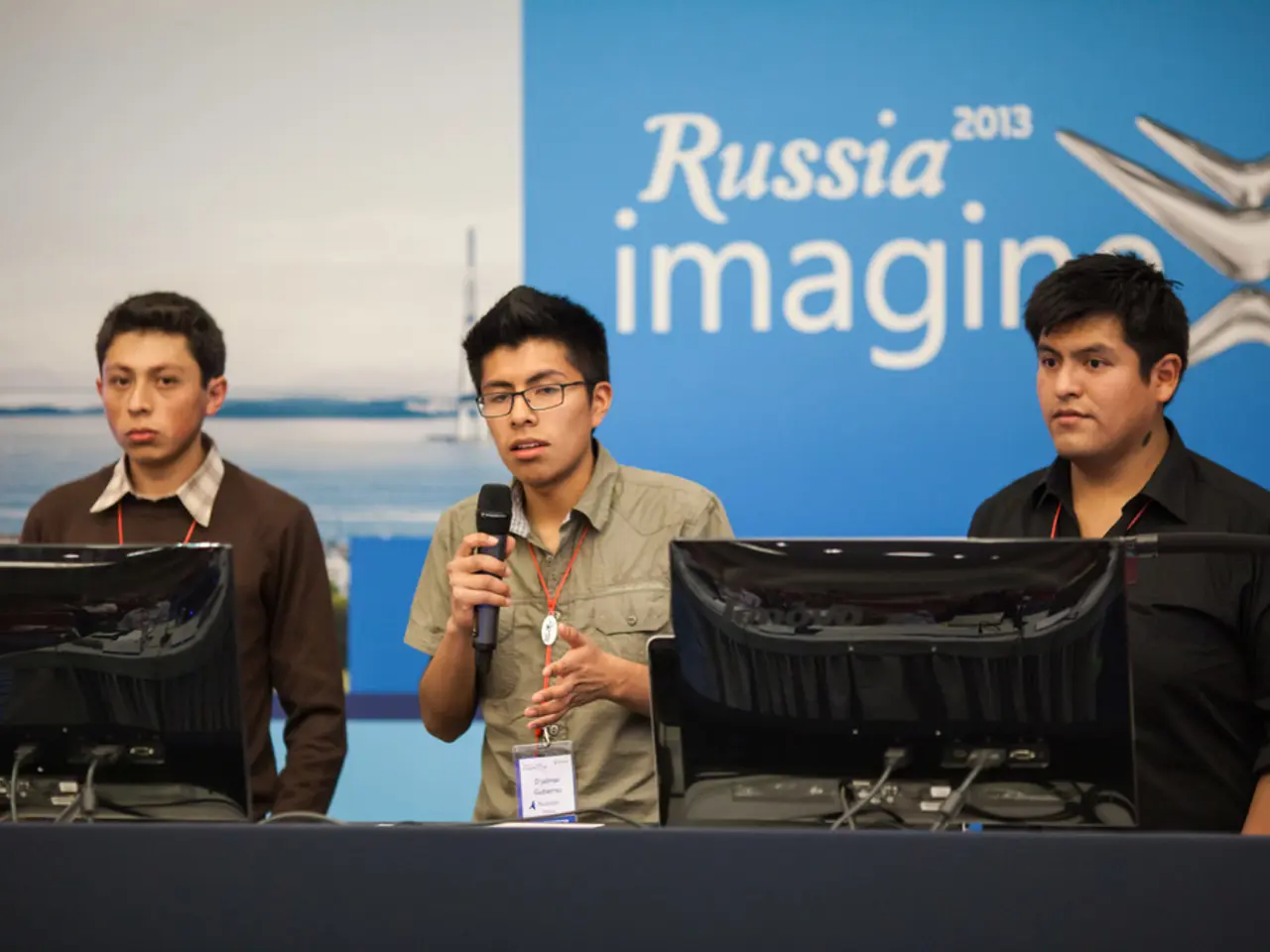A group of European nations join forces in a united front, while Trump advocates for a summit between Putin and Zelenskyy.
In the ongoing Ukraine-Russia War, a significant development has emerged as European leaders, including Starmer and Macron, form a "coalition of the willing" in support of Ukraine. This coalition, aimed at blocking any peace deal that redraws Ukraine's borders by force, is seen as a direct challenge to the security system of European nations.
Meanwhile, President Donald Trump is pressing for a three-way summit with Putin and Zelenskyy, which could take place as early as August 22. This move, viewed by some as a challenge to Europe's influence, has raised concerns among European leaders, who believe they are being looked to by Trump to drive results.
Russian President Vladimir Putin's specific demands in negotiations to end the Russia-Ukraine war, as reported by Peter Doocy on Fox Report, include the following key points:
- No NATO membership for Ukraine: Putin insists Ukraine must not join NATO.
- No Western troops on Ukrainian soil: The withdrawal of all Western military presence is demanded.
- Control or surrender of the Donbas region: Putin insists on control over Donbas, particularly Donetsk oblast.
- Freeze of front lines in certain areas: He would agree to freeze fighting at current front lines in Kharkiv and Zaporizhzhia regions.
- Relinquishment of some territory: Putin might give up some territory Russia has taken in the Kharkiv, Sumy, and Dnipropetrovsk regions.
These demands, conveyed in a recent discussion between Putin and Trump, mark a shift from an earlier 2024 position demanding Ukraine surrender all four regions Russia annexed in 2022 (Donetsk, Luhansk, Kharkiv, Zaporizhzhia). Despite negotiations, Putin apparently refuses a full ceasefire and plans to continue military operations in other contested oblasts such as Sumy and Kharkiv.
The upcoming meetings between Zelenskyy, Trump, and the potential three-way summit will demonstrate the influence of Europe's coalition or the dominance of Washington and Moscow in the negotiations. On Monday, Ukrainian President Volodymyr Zelenskyy is scheduled to arrive in Washington, following his summit with President Putin in Alaska on Friday. The White House did not immediately respond to a request for comment regarding Zelenskyy's upcoming meeting.
Interestingly, Putin has also floated China as a possible guarantor, a move that would push NATO aside. This potential summit would mark the first direct encounter between the three leaders since the war began.
The "coalition of the willing" aims to form a singular front before Zelenskyy faces Trump. In a virtual meeting on Sunday, French President Emmanuel Macron, British Prime Minister Keir Starmer, and German Chancellor Friedrich Merz will discuss their strategy.
According to Axios, Putin's terms would shift far more land to Russia than Ukraine would gain. As the negotiations continue, the world watches with bated breath, hoping for a peaceful resolution to this long-standing conflict.
[1] Peter Doocy, Fox Report, Date of Broadcast [2] Axios, Date of Publication [3] The Washington Post, Date of Publication
- In light of Putin's demands, such as the prohibition of Ukraine joining NATO and the withdrawal of Western troops, the "coalition of the willing" is determined to present a unified front before political negotiations with President Trump, aiming to influence the outcomes of policy-and-legislation related to war-and-conflicts like the Ukraine-Russia War.
- As the general-news circles around the upcoming meetings between Zelenskyy, Trump, and potential three-way summit, the discussion revolving around Putin's proposed conditions, which could concede more territory to Russia than Ukraine would gain, highlights the crucial role of politics and international diplomacy in shaping the future landscape of war-and-conflicts worldwide.







